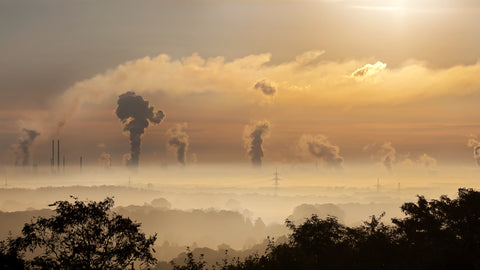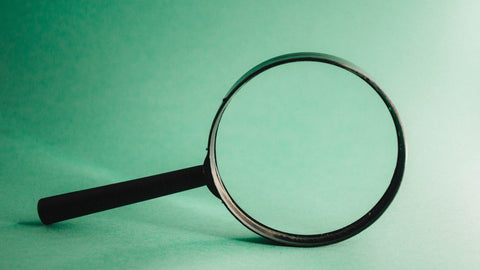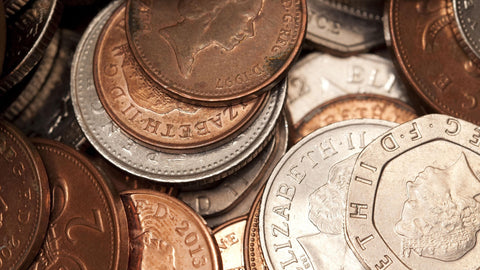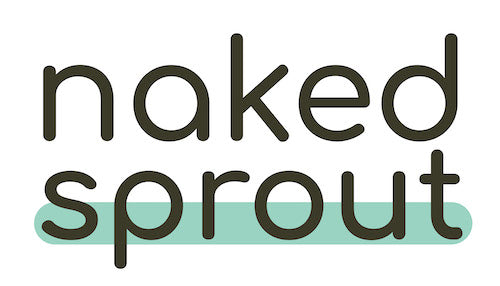What is “Green Hushing?”

We’re back with another piece delving into the buzzwords, hype, and distractions that surround corporate claims of sustainability. Today we’re looking at a strange shadow side of greenwashing, green hushing.
In a world where green products are increasingly in demand, why do some companies seem to tiptoe around their environmental targets and credentials, instead of shouting them from the rooftops?
We can think of a few reasons. Let’s take a peek behind the curtain.

The Green Dilemma: To Shout or to Shush?
Picture this: You're a company making a product, let’s say eco toilet rolls. You've invested time, money, and resources into making your operations more sustainable, from reducing carbon emissions in your fuel supply to switching your raw materials to more environmentally friendly equivalents.
So it stands to reason you’d do everything you could to publicise the details of these policies, and bask in the glow of environmental adoration. Right?
Well it's not always that simple. As sustainability comes to the fore of public consciousness, some companies are nervous about the scrutiny it can bring.
Enter green hushing.

The Big Green Hush
We’ll start with the examples of big business. The biggest companies on the planet are some of the biggest polluters. The packaging used by the big food and drinks manufacturers accounts for 36% of all plastics produced, oil and gas companies are responsible for around 15% of total global emissions from energy.
As we would expect, companies like this are keen to clean up their image, and so we see the standard greenwashing - big bold claims of reducing plastic and investing in clean energy, even as standard ways of doing business continue, empty bottles fill the oceans, and the emissions from fossil fuels wreck havoc on the global climate.
But what about green hushing? That’s rather more subtle, and often taking place at the same time. Because it’s not entirely true that larger companies are doing nothing to improve their impact. Whether for better PR or simply because supplies of fossil-fuels and raw materials are becoming stretched, it’s obvious to everyone that the future is going to have to be more sustainable.
So many of the world's biggest companies are setting targets, even setting Science Based Targets, to bring down their climate footprint. But, the puzzling thing is, a sizable chunk aren’t talking about them. In fact South Pole, an organisation that develops and implements emission reduction projects, surveyed 1200 global companies and found that, while many of them are seeking to implement net-zero targets, one in four of them don’t plan to publicise them.
South Pole describes the phenomenon as “going green and then going dark.”
Why would you do this, and why is it a problem?

1. Facing Scrutiny
Let's start with the big one: fear of scrutiny. In today's hyper-connected world outrage spreads like wildfire. Companies are walking a tightrope between genuine efforts and potential criticism. Imagine investing in a new eco-friendly initiative, only to face a barrage of criticism pointing out the areas where it falls short.
And this isn’t just a few bloggers or posts on Facebook - in 2024, scrutiny has teeth. Bodies like the EU and UK’s Advertising Standards Association are putting into place regulation that means green claims need to be backed up, citizen activism groups like Greenpeace have battalions of fact-finders and volunteers, more sustainable competitors are motivated to look into your claims.
It's enough to make any green-minded CEO break out in a cold sweat. But if you don’t make the details of the claims public, you can’t be called out on them.

2. Competitive Edge
There’s also the competitive edge to consider. In an increasingly crowded marketplace, where every company is vying for consumers' attention and wallet, sustainability has become the new battleground. But revealing too much about your environmental efforts could also mean revealing your hand to competitors. If you’ve figured out one weird tip to bring down the emissions from your transport (like we have recently!) maybe you’d want to keep that to yourself.
But there’s a real downside to this kind of self-protection, it limits the sharing of knowledge. If you’re in the toilet roll industry, for example, it’s likely that other tissue manufacturers would be able to implement at least some of your solutions for more sustainable manufacturing if they wanted to. And at the end of the day, it’s better for the planet if they do.
We all remember the feeling from school of not wanting others to crib off our homework (only us? okay). But we’re not at school, we’re heading towards a climate emergency, and the best thing is if everyone can see what everyone else is doing to prevent it.

3. Complexity Overload
And finally, it’s worth bearing in mind the sheer complexity of the issue.
Navigating the ever-changing labyrinth of environmental regulations, certifications, and practices that go into making products more sustainably can feel like trying to untangle a ball of wool in a storm. For smaller companies who are doing their best to be sustainable, it's all too easy to get bogged down in the details and lose sight of the bigger picture. Sometimes, it's just simpler to keep things under wraps than to try and explain the nuances to consumers.
But this gives the impression that these things are simply too hard to contemplate, and they’re not.
Any established company should be able to provide the details of their raw materials, energy supply, and transport. If they’re big enough to have slick branding advertising their sustainability, they are big enough to back up the claims they are making. If they don’t, it’s probably because they don’t want to. We have a team of seven people at Naked Sprout, and we’re managing it.
And when it comes to smaller companies, just ask! You can ask us anything you like at hello@nakedsprout.uk. If we haven’t heard the question before we will have a think and answer honestly.

Conclusion - a Call for Transparency
So that’s green hushing, and why some companies are doing it.
It’s not that mysterious when it comes down to it, it’s a bid to avoid scrutiny, navigate increasingly competitive markets, and manage complexity.
We understand it, but we don’t believe in it. At Naked Sprout we offer transparency into our processes, and we make unbleached toilet rolls, tissues, and kitchen rolls with a manufacturing process powered by renewable energy, and climate labelling.
It definitely isn’t the easiest path to huge profits, but we’re certain it’s the best course of action for ourselves as a company, and for our planet.
Want tissue products from a company that’s not shy about their green credentials?




